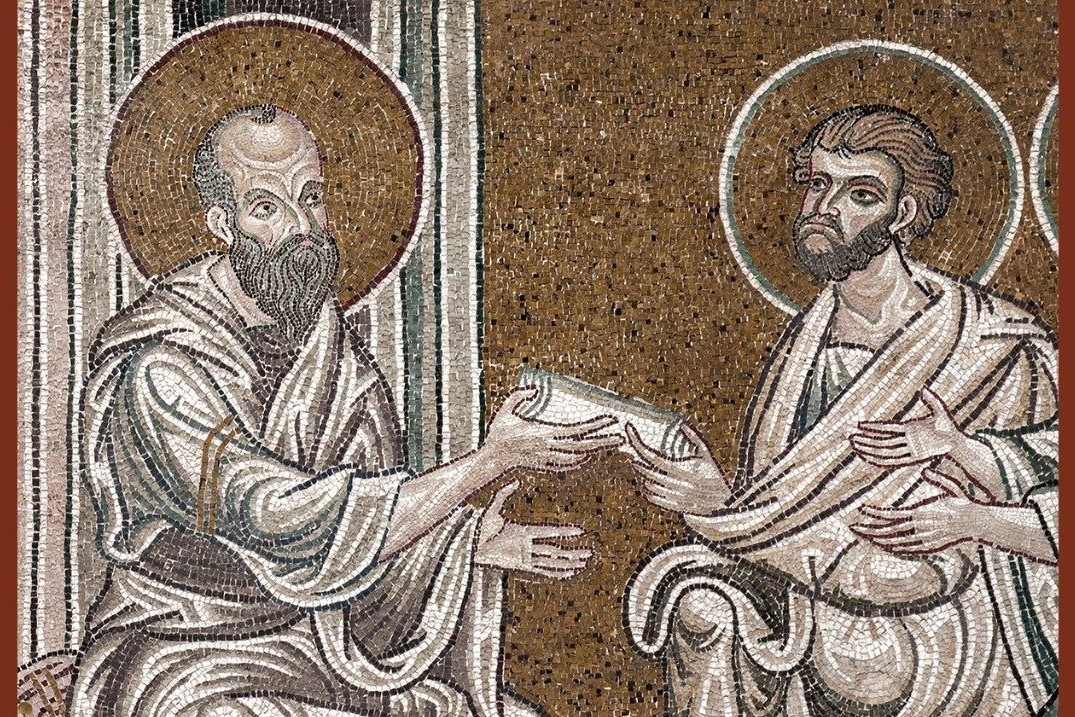
Saint Of The Day For January 26: Saints Timothy and Titus, Bishops
Closest collaborators of Saint Paul, St. Timothy, born to a pagan father and a Jewish mother, was appointed by the Apostle to the Gentiles to lead the Church at Ephesus; while St. Titus was placed at the head of the Church of Crete.
Their liturgical memory is kept on January 26th.
The Story of Timothy and Titus
Timothy was born in Listra (about 200 km north-west of Tarsus) to a Jewish mother and a pagan father.
When Paul passed through those lands at the beginning of his second missionary journey, he chose Timothy as a companion because “he was highly esteemed by the brethren of Lystra and Iconium, (Acts 16: 2)” but he circumcised him “for the Jews that were in those regions.
(Acts 16:3)” With the Apostle of the Gentiles, Timothy passed through Asia Minor and reached Macedonia.
He then accompanied Paul to Athens and from there he was sent to Thessalonica.
Then, he continued to Corinth and collaborated in the evangelization of the city on the isthmus.
The figure of Timothy stands out like that of a great shepherd.
According to the later Ecclesiastical History of Eusebius, Timothy was the first Bishop of Ephesus.
Some of his relics came from Constantinople in 1239, to rest in Italy, in the Cathedral of Termoli in Molise.
Titus was from a Greek family, still a pagan, and was converted by Paul on one of his journeys, only to become his collaborator, companion and brother in mission.
The Apostle of the Gentiles took Titus with him to Jerusalem, for the so-called Apostolic Council, precisely at the crucial moment of the controversy concerning the baptism of the Gentiles.
The Apostle was resolutely opposed to the circumcision of the Christians of Antioch, and Titus thus became a living symbol of the universality of Christianity, without distinction of nationality, race or culture.
After the departure of Timothy from Corinth, Paul entrusted Titus with the task of bringing that difficult community back to obedience, and he succeeded in bringing peace between the Church of Corinth and the Apostle.
Titus was sent back to Corinth by Paul, who called him, “My companion and collaborator, (2 Cor 8:23)” to organize the conclusion of the collections for the Christians of Jerusalem.
Further information from the pastoral letters qualifies him as Bishop of Crete.
Timothy and Titus, Two faithful servants of the Gospel
Paul circumcised the disciple Timothy and did not circumcise Titus, whom he also brought with him to Jerusalem before the Council of the Apostles.
Thus, in his two collaborators, Paul unites the men of circumcision and the men of non-circumcision; the men of the law and the men of the faith.
According to tradition, Paul wrote two letters to Timothy and one to Titus.
They are the only two letters of the New Testament addressed not to communities but to people.
By then an old man, St. Paul the Apostle allowed himself to write letters full of affection towards his two disciples, pleased to have put the proclamation of the Gospel in their hands.
According to Benedict XVI, Timothy and Titus “teach us to serve the Gospel with generosity, knowing that this also involves a service to the Church itself.”
Read Also:
Saint Of The Day For January 17: Saint Antony, Abbott
Saint Of The Day For January 16: Saint Marcellus I, Pope And Martyr
Saint Of The Day For January 15: Saint Mauro, Abbot
Nigeria: Terrorists Burn Priest Alive, Wound Another, And Abduct Five Faithful
DR Congo: Bomb Explodes In Church, At Least 17 Killed And 20 Injured
